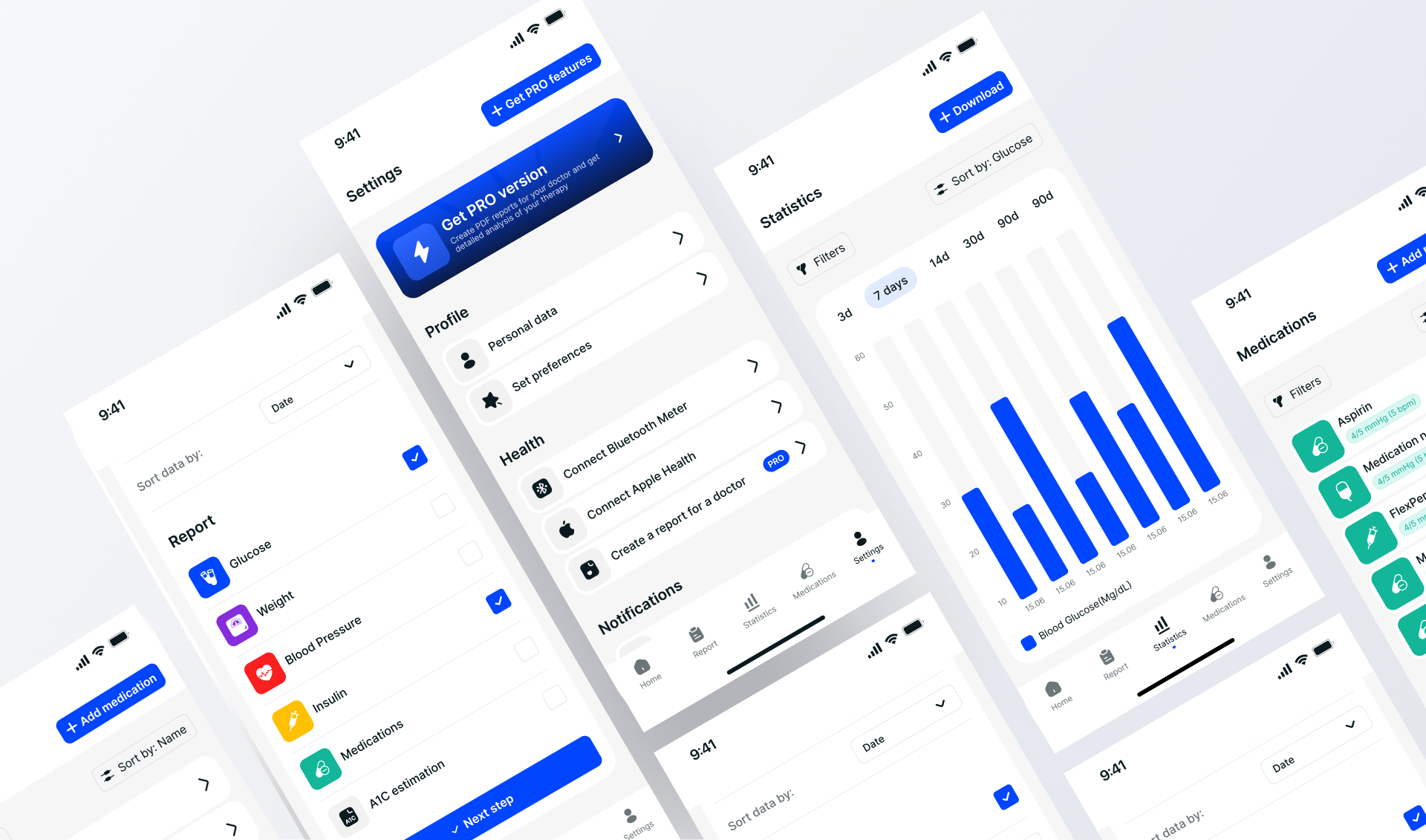
- Glucoly
- October 11, 2024
How Sleep Affects Blood Sugar Levels: The Diabetes Connection
How Sleep Affects Blood Sugar Levels: The Diabetes Connection
Sleep is essential for everyone, but for people managing diabetes, it plays an even more critical role. The relationship between sleep and blood sugar levels is well-established—sleep directly affects how your body processes glucose. Poor sleep or inconsistent sleep patterns can throw your blood sugar regulation out of balance, leading to potential spikes or drops. Let’s dive into how sleep impacts blood sugar and what you can do to improve both your sleep and diabetes management.
Ready to optimize both your sleep and blood sugar? Download Glucoly now and start tracking for better diabetes management!
The Science Behind Sleep and Glucose Regulation
During sleep, your body goes through different cycles that affect various bodily functions, including glucose metabolism. Deep sleep, in particular, is when your body restores and repairs itself, which includes processing blood sugar. If sleep is interrupted or cut short, your body may not manage blood glucose efficiently, leading to insulin resistance—a condition where cells don’t respond properly to insulin.
Hormonal Changes During Sleep
Hormones also play a key role in regulating blood sugar levels. During the night, your body naturally releases less insulin. However, in people with diabetes, this process can be thrown off by poor sleep patterns, leading to higher blood sugar levels in the morning, a phenomenon often called the “dawn effect.” When sleep is disrupted, the body’s stress hormone, cortisol, increases, which raises blood glucose levels and can cause imbalances.
The Risks of Poor Sleep for People with Diabetes
When you don’t get enough sleep or your sleep quality is poor, your body’s ability to regulate blood sugar suffers. Studies have shown that sleep deprivation can lead to insulin resistance, where your body has difficulty managing glucose, even if you’ve eaten a balanced meal or taken insulin. This makes it harder to maintain steady blood sugar levels, leading to an increased risk of hyperglycemia (high blood sugar) or hypoglycemia (low blood sugar).
Sleep Apnea and Blood Sugar Control
For people with diabetes, sleep apnea—a condition where breathing repeatedly stops during sleep—can exacerbate blood sugar problems. Sleep apnea is common among people with type 2 diabetes, and it can cause spikes in blood sugar levels throughout the night. The lack of oxygen during sleep disrupts glucose metabolism and increases the production of cortisol, leading to insulin resistance.
How Consistent Sleep Improves Diabetes Management
Improving your sleep can significantly enhance your ability to manage diabetes. Quality sleep helps regulate the hormones that control glucose, reducing the risk of blood sugar fluctuations. Getting consistent, restorative sleep gives your body the opportunity to lower glucose levels naturally, improve insulin sensitivity, and promote overall well-being.
Tracking Sleep Patterns with Technology
One of the most effective ways to improve your sleep and manage your diabetes is by using technology to monitor your sleep patterns. By recognizing how poor sleep impacts your glucose, you can adjust your routines, manage stress, and take steps to improve sleep hygiene for better overall health.
Practical Tips for Better Sleep and Blood Sugar Control
To improve both your sleep and blood sugar management, consider implementing these strategies:
- Stick to a Sleep Schedule: Go to bed and wake up at the same time every day, even on weekends, to regulate your body’s internal clock.
- Create a Relaxing Bedtime Routine: Engage in calming activities before bed, such as reading or meditation, to signal to your body that it’s time to sleep.
- Watch Your Evening Meals: Avoid large meals, caffeine, and alcohol before bedtime, as they can disrupt your sleep.
- Monitor Blood Sugar Before Bed: Keep an eye on your glucose levels before going to sleep to avoid nighttime hypoglycemia or hyperglycemia.
By improving sleep hygiene and keeping a close watch on your blood sugar, you can prevent fluctuations and enhance your overall health.
Conclusion: Prioritizing Sleep for Better Blood Sugar Management
Sleep and diabetes management are closely connected, and poor sleep can worsen blood sugar control, leading to insulin resistance and other complications. By focusing on improving your sleep and tracking your health metrics using tools like Glucoly, you can gain better control over your diabetes and enhance your quality of life.
Ready to optimize both your sleep and blood sugar? Download Glucoly now and start tracking for better diabetes management!
